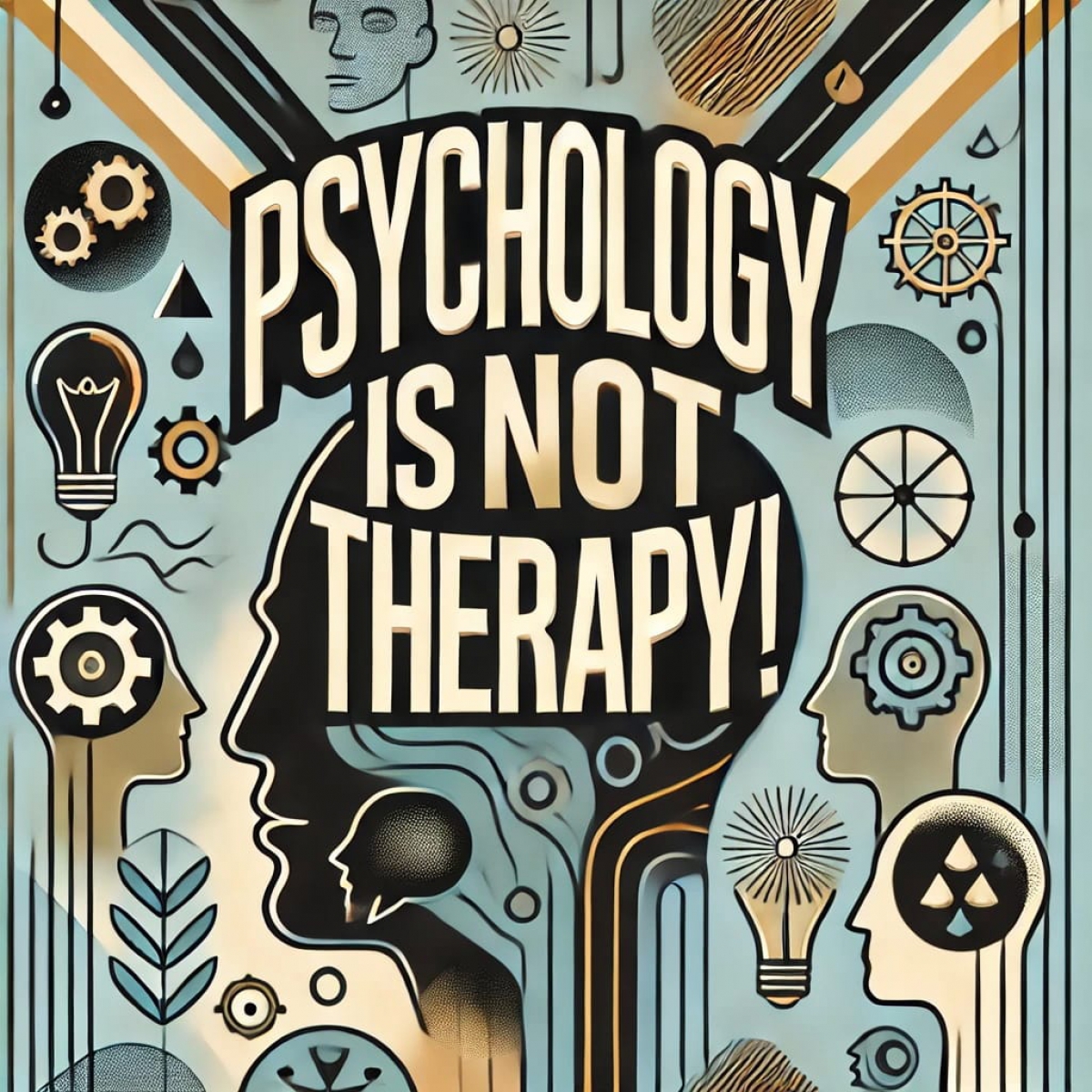However, in reality, these terms carry completely different meanings and represent distinct types of activities.
Understanding the difference between psychology and therapy is crucial and can help us better determine when to consult a psychologist and when to see a therapist.
There are many interpretations of the term psychology, but generally, they converge on the following:
Psychology is the science that studies mental processes and human behavior as a personality. In other words, psychology helps us understand how we think, feel, behave, and how these can be changed if necessary.
Therapy, as a term, is universally interpreted as treatment. Here are some examples:
Comprehensive Encyclopedia:
Therapy – a branch of medicine that studies internal diseases and methods of their treatment. In a broader sense, therapy means treatment of illnesses without surgical intervention.
Comprehensive Dictionary of Modern Ukrainian Language:
Therapy – treatment of internal diseases, the use of medicines and procedures to alleviate or cure pathological conditions of the body.
Oxford English Dictionary:
Therapy – the treatment of physical or mental disorders using medical, psychological, or other methods.
Let’s clarify: when we visit a doctor, including a therapist, we seek treatment, which involves diagnosing a disease and prescribing the appropriate therapy. This applies to medical psychotherapists and psychiatrists.
But what happens when we visit a psychologist, who might also call themselves a psychotherapist or even a therapist (a common practice today)? Often, people speak of diagnostics and therapy, meaning treatment, as defined in all dictionaries.
But what does a psychologist actually do? To treat someone in any country, one must hold a medical degree and a license. The answers vary: a psychologist helps, supports, consults, etc. Some argue that today the term "treatment" can have many interpretations. This situation may be humorously described using V. Vysotsky's words: "I’m jumping with delight!" The term has a clear definition in dictionaries, yet psychologists may interpret it in any way they find convenient. Unfortunately, this trend is widespread regarding various concepts. Many believe it’s unimportant what dictionaries say, claiming that psychologists also treat, but in a different, non-medical way.
This causes confusion in practical psychology: there are many approaches, numerous psychologists specializing in different practices, yet their exact scope of work remains unclear. In other words, how can their activity be characterized by a single term? That’s the challenge.
To understand this, we need to clarify what issues people bring to a psychologist.
Patients visit doctors with health complaints, while clients approach psychologists with specific requests—what can broadly be described as personal problems in various life areas.
What does a problem mean to us, psychologists? It’s not an easy question.
In brief: A problem in psychology is what a person fails to do, making mistakes in professional activity, personal life, or health-related attitudes. These issues lead to negative states: internal conflicts, anxiety, emotional distress, social or professional maladjustment, and so on, even extending to illness or criminality.
Thus, psychologists do not diagnose or treat. These are purely medical terms borrowed from medicine, as psychology historically emerged from philosophy and medicine. Additionally, these terms inadvertently lend authority and perceived significance to a psychologist’s work, yet they distort the essence of providing professional psychological services.
So, what does a psychologist do? The essence of their work lies not in treating clients but in an entirely different realm, one that doesn’t overlap with other fields, including medical professions.
Psychologists conduct psychological research, not diagnostics, as they are not authorized to make diagnoses. They are not involved in treatment but in the development of individuals as personalities, fostering new psychological qualities for success in professional and personal spheres and a healthier attitude toward oneself. Solving a client’s problem involves cultivating new personal qualities, leading to improved conditions for self-realization or even eliminating adverse situations and stress in professional or personal life, harmonizing emotional states, and restoring health as resilience to external factors.
In this, we psychologists socially distinguish ourselves from all other professions, including medicine.
We psychologists do not need to treat anyone! Our clients, even those with medical diagnoses, are not sick individuals but those seeking personal growth. Our task is to facilitate the development of the individual. This is the only correct solution to problems rooted in a person’s inability to realize themselves due to mistaken beliefs, including about themselves. We must accept that none of us are perfect and that the only path to happiness is personal growth. This evolutionary development of the individual is precisely what psychologists do, fully recognizing that Psychology is not Therapy!
Yevhen Shantyr,
Professor of Psychology, Doctor of Philosophy in Medicine.
```
 Eng
Eng  Укр
Укр 